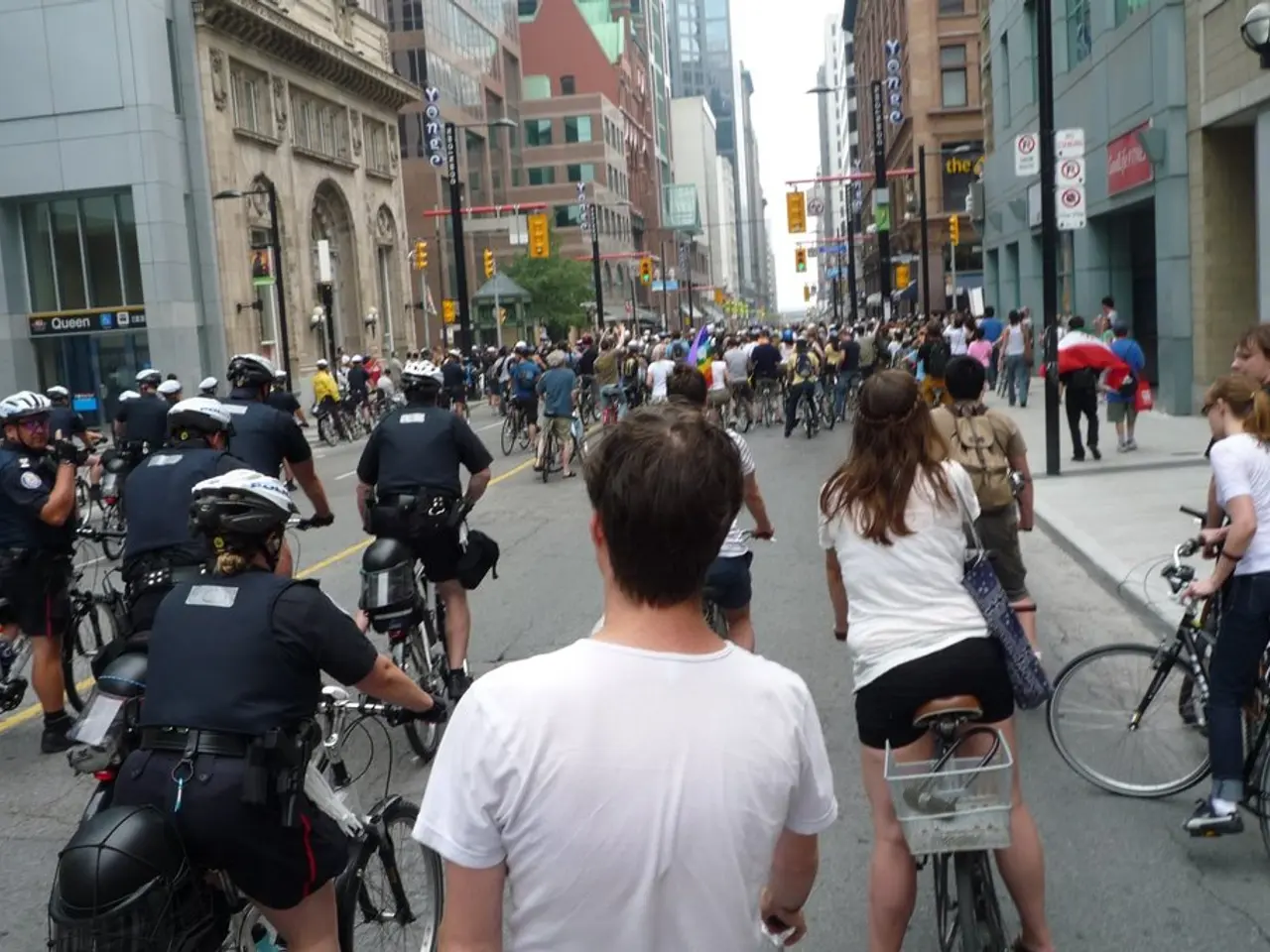Cyclists versus Trucks: A Roadway Conflict
In the heart of Düsseldorf, a notable local issue has been unfolding - the conflict between commercial-industrial traffic and cycling traffic in the Reisholzer Hafen industrial area. As the city promotes cycling infrastructure, it faces the challenge of managing heavy commercial traffic.
Current Developments
The city authorities have been working on establishing dedicated bike lanes in the Reisholzer Hafen area to improve safety and connectivity for cyclists. This includes redesigning parts of industrial roads to better accommodate bike traffic, with marked lanes physically separated where possible.
To maintain access for commercial vehicles, efforts have been made to balance their needs with those of cyclists. Adjustments like traffic calming measures, reduced speed limits, and improved signage have been introduced or proposed.
Stakeholder Involvement
Local government authorities, business owners in the industrial area, cycling advocacy groups, and residents have been involved in consultations. Some businesses express concern about potential delays or restricted access for trucks, fearing impact on operational efficiency.
Safety Improvements
The projects aim to reduce accidents and near-misses involving cyclists and heavy vehicles, which have been a concern in the industrial zone. Enhanced lighting and better visibility features are part of the improvements.
Opinions and Controversies
Many local cyclists and cycling organizations support the bike lane project as a necessary step toward safer, more sustainable transport options. On the other hand, some business operators express reservations or opposition, concerned that bike lanes might reduce road space for commercial vehicles.
Urban planners and city officials stress the importance of coexistence and smart design to ensure both economic activity and sustainable mobility. The city appears committed to continuing dialogue and fine-tuning the infrastructure to balance these needs.
Local residents have a mix of opinions, with some welcoming reduced traffic speeds and more active transport options, while others worry about noise or congestion shifting to residential roads nearby.
Summary
The Reisholzer Hafen bike lane project is progressing as part of Düsseldorf’s broader goal to expand cycling infrastructure, but it faces the complex challenge of integrating this within a heavily used industrial transport zone. Success depends on ongoing negotiation and adjustment to meet diverse stakeholder needs while prioritizing safety and sustainable urban mobility.
Deputy Mayor for Mobility, Cornelia Zuschke, has stated that they will continue working on a solution for traffic after collecting new data post-Corona. Martin Volkenbrath, the SPD traffic expert, criticizes the local companies for demanding free public parking space for commercial interests. Numerous regional cycling routes lead over the street Am Trippelsberg.
- The Deputy Mayor for Mobility, Cornelia Zuschke, has emphasized the city's ongoing commitment to working on a solution for traffic in Reisholzer Hafen, especially after the collection of new data post-Corona.
- Martin Volkenbrath, the SPD traffic expert, has criticized local companies for demanding free public parking space, prioritizing commercial interests over environmental-science-related infrastructure.
- The expansion of cycling infrastructure, including the Reisholzer Hafen bike lane project, is not only for the sake of sports or lifestyle, but also for promoting sustainable urban mobility and environmental-science.
- As Transportation and Science intertwine in the heart of Düsseldorf, the city balance the needs of industry and cycling traffic, reaching out to all stakeholders, including finance, businesses, and residents, to ensure a harmonious outcome.




